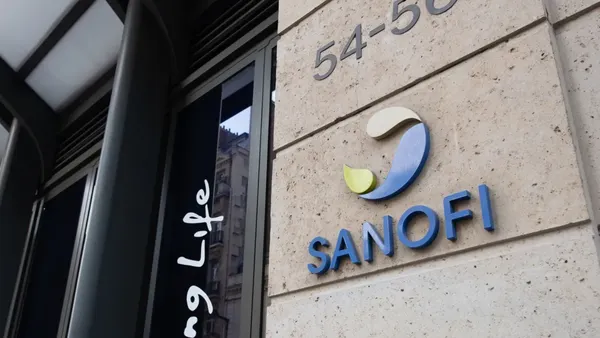A two-drug regimen involving AstraZeneca and Daiichi Sankyo’s Enhertu topped standard therapy in a large study in HER2-positive breast cancer, the companies said Monday.
In a Phase 3 trial, a combination of Enhertu and the targeted therapy pertuzumab held tumors in check longer than THP, a regimen of chemotherapy and precision medicines that’s commonly used as an initial treatment for metastatic breast tumors expressing the HER2 protein. The companies didn’t provide specifics, but said the regimen displayed a “highly statistically significant and clinically meaningful effect” on so-called progression-free survival in the study, with benefits across all patient subgroups.
Additionally, while it is too early to tell whether Enhertu and pertuzumab are extending lives, “an early trend” favors their impact on survival, the companies said. Investigators and patients also remain blinded to a different arm of the trial comparing Enhertu alone to THP. That part of the study will continue to a final analysis.
Safety was consistent with what’s been observed in use of each individual therapy, the companies said. AstraZeneca and Daiichi will present the findings at a future medical meeting and share the results with regulators.
The data could open up a new use for Enhertu, a medicine that’s become a mainstay of breast cancer care over the last several years. Since its initial approval as a third-line treatment for HER2-positive breast cancer in 2019, the drug has succeeded in multiple other late-stage breast cancer trials, along the way changing how certain tumors are characterized and treated.
Enhertu, a type of targeted therapy known as an antibody-drug conjugate, has also shown it may be able to supplant chemotherapy in certain settings — part of a plan by AstraZeneca and Daiichi to show that these ADCs can be given to patients earlier and more broadly. Earlier this year, the drug was approved for use before chemotherapy in people whose breast cancers have low, but still detectable HER2 levels.
The data announced Monday could enable Enhertu to be used earlier in people with classically HER2 positive tumors, which account for about 15% to 20% of all breast cancers. The study enrolled 1,157 patients newly diagnosed with advanced HER2 breast cancer and randomized them to receive either Enhertu and pertuzumab or THP, which is a combination of an oft-used type of chemotherapy, pertuzumab and another antibody drug called trastuzumab.
THP has been the standard initial therapy for HER2-positive tumors for more than 10 years. But most patients still experience disease progression within two years of receiving treatment, according to AstraZeneca. Susan Galbraith, the company’s executive vice president of oncology and hematology research and development, said in a statement that the Enhertu study is the first time in more than a decade a drug has shown a benefit against the current first-line standard of care across a broad group of people with the disease.
“This is a significant milestone for patients and sets the foundation for Enhertu in combination with pertuzumab as an important treatment option in the first-line HER2-positive setting,” Galbraith said.
Enhertu generated about $3.8 billion in sales in 2024, up from about $2.6 billion the year prior.













